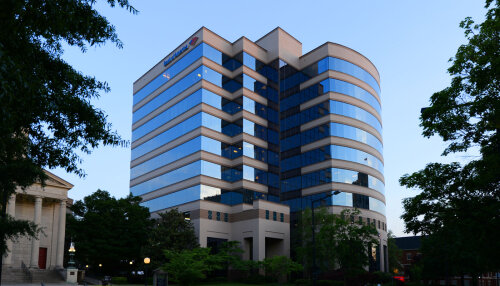Best Wrongful Death Lawyers in Knoxville
Share your needs with us, get contacted by law firms.
Free. Takes 2 min.
List of the best lawyers in Knoxville, United States
About Wrongful Death Law in Knoxville, United States
Wrongful-death law covers civil claims that arise when a person dies because of another party's negligence, recklessness, intentional act, or other wrongful conduct. In Knoxville, wrongful-death claims are pursued under Tennessee state law and are handled in local courts when the facts giving rise to the claim occur in or affect people in Knox County. A wrongful-death claim is separate from any criminal prosecution that may follow the same incident. The civil action focuses on compensation for the survivors and the financial and non-financial losses resulting from the death.
Why You May Need a Lawyer
Handling a wrongful-death matter involves legal complexity, strict deadlines, and high stakes. People commonly seek a lawyer in these situations because:
- Evidence collection and preservation can be technical and time-sensitive. A lawyer helps preserve relevant records, investigatory reports, medical records, physical evidence, and witness statements.
- Proving liability often requires expert witnesses. Medical experts, accident reconstruction specialists, and economic life-care planners may be needed to establish causation and measure damages.
- Insurance companies often try to minimize payouts or deny liability. Lawyers understand insurance tactics and negotiate or litigate to protect survivors' rights.
- There are procedural rules and statutory requirements unique to wrongful-death cases, such as who is the proper plaintiff and how damages are allocated among beneficiaries.
- Some defendants may be government entities with special notice and immunity rules. A lawyer can identify and comply with those rules and pursue remedies where possible.
- Emotional stress and grief can make it difficult to make strategic legal decisions. An attorney can handle legal work and advise on settlement versus trial and on fair valuation of losses.
Local Laws Overview
While wrongful-death claims in Knoxville are governed by Tennessee state law, certain local facts and procedures are especially relevant:
- Who may bring the claim: Tennessee wrongful-death law requires that claims be pursued by the deceased person's personal representative on behalf of the deceased person's statutory beneficiaries. The distribution of any recovery follows state statutory priorities and court supervision.
- Two distinct actions: Tennessee recognizes both a wrongful-death action and a survival action. The wrongful-death claim compensates survivors for their losses, while the survival action addresses the deceased person's own damages that accrued before death. These can be brought together or separately, depending on the case.
- Statutory deadlines: State statutes impose strict filing deadlines for wrongful-death and related claims. Timely filing is critical, because missed deadlines usually bar recovery. Local practice in Knox County courts may also affect scheduling and procedural timing.
- Comparative fault: Tennessee applies comparative-fault principles. If the deceased was partially at fault for the incident that caused the death, the available recovery can be reduced in proportion to that fault. Fault allocation can be contested and requires factual proof.
- Damages types: Recoverable damages typically include lost financial support and benefits, loss of companionship and consortium, funeral and burial expenses, and in some cases punitive damages when the defendant’s conduct was especially egregious. Tennessee law also governs what categories of damages are permitted and how they are calculated.
- Governmental immunity and notice rules: If a public employee, municipality, or other governmental entity is involved, special notice requirements and limits on liability may apply. These rules are strict and require early attention.
- Local court procedures: Knox County courts have local rules and practices for filing civil suits, case management, discovery, and trial scheduling. An attorney familiar with local judges, clerks, and the courthouse can help navigate those procedures efficiently.
Frequently Asked Questions
What is the difference between a wrongful-death claim and a criminal prosecution?
A criminal prosecution is brought by the state to punish wrongdoing and requires proof beyond a reasonable doubt. A wrongful-death civil claim is brought by the deceased person's representative to obtain compensation for survivors and uses a lower burden of proof, typically a preponderance of the evidence. Both proceedings can occur independently of each other.
Who can sue for wrongful death in Tennessee?
Under Tennessee practice, the deceased person's personal representative typically files the wrongful-death claim on behalf of the statutory beneficiaries. Beneficiaries commonly include the spouse, children, and other next of kin. The exact set of beneficiaries and how recovery is distributed is determined by state statute and court supervision.
How long do I have to file a wrongful-death lawsuit?
Time limits for filing are governed by state statutes and are strictly enforced. There are also special deadlines when a government defendant is involved. Because deadlines vary by circumstance and missing them can bar your claim, you should consult an attorney as soon as possible to determine the exact timing that applies to your case.
What kinds of damages can survivors recover?
Survivors may recover economic damages such as loss of financial support and benefits, funeral and burial costs, and medical expenses related to the deceased’s final injury or illness. Non-economic damages may include loss of companionship, guidance, and consortium. In rare cases with particularly wrongful conduct, punitive damages may be available to punish and deter the defendant.
Will a settlement prevent a criminal case?
A civil settlement does not automatically prevent a criminal prosecution, and a criminal conviction does not automatically resolve civil claims. However, the outcomes can affect each other. For example, an admission in a civil settlement could be used in subsequent criminal proceedings, and a criminal conviction may be admissible evidence in the civil case. Your lawyer can help coordinate timing and strategy accordingly.
Do I need expert witnesses?
Many wrongful-death cases require expert testimony to prove medical causation, accident mechanics, life-care needs, or economic loss. Experts strengthen a claim by explaining complex technical matters to judges and juries and by supporting damage calculations.
How do insurance companies handle wrongful-death claims?
Insurance companies often begin with low settlement offers and may try to obtain recorded statements or releases from survivors. These tactics can reduce eventual recovery. An experienced lawyer protects your interests in communications with insurers, evaluates offers, and negotiates or litigates when appropriate.
What if the person who caused the death was a minor, or the deceased was partially at fault?
Minors and comparative fault raise special legal issues. When the deceased is partially at fault, their share of fault can reduce the recoverable damages. If the alleged wrongdoer is a minor, special procedures and possibly parental liability rules may apply. An attorney can explain how these factors affect your claim.
Can I pursue a claim if the death was caused by a defective product or a medical error?
Yes. Wrongful-death claims can arise from product defects, medical malpractice, motor-vehicle crashes, premises liability, and other causes. Product-liability and medical-malpractice claims have additional evidentiary and procedural requirements, often including expert proof and, in some cases, pre-suit notice obligations.
How much will a lawyer cost?
Many wrongful-death attorneys work on a contingency-fee basis, meaning they are paid a percentage of any recovery and advance case costs. If there is no recovery, the attorney’s fee is typically not owed, though the client may be responsible for certain advanced costs in some arrangements. Fee agreements vary, so review and understand the contract before you retain counsel.
Additional Resources
When dealing with a wrongful-death matter in Knoxville, these types of resources and organizations can be helpful to consult or contact for information and assistance:
- Knox County Clerk and Civil Court offices for filing procedures and local court rules.
- Knox County Medical Examiner or Coroner for information about cause of death and autopsy reports.
- Knoxville Police Department and Knox County Sheriff’s Office for investigative reports and records.
- Tennessee Department of Safety for motor-vehicle records and driver information.
- Tennessee Bar Association and Knoxville Bar Association for lawyer referral services and information about qualified wrongful-death attorneys.
- Legal aid organizations and victim-advocate services that can provide counseling and, in some cases, legal help for qualifying individuals.
- Local hospitals and medical records departments for obtaining treatment records and billing information relevant to your claim.
- National and state organizations focused on victim support, grief counseling, and family services that can assist with emotional and practical needs while legal matters proceed.
Next Steps
If you believe you have a wrongful-death claim in Knoxville, these steps can help you move forward:
- Seek immediate legal consultation. Contact an attorney experienced in wrongful-death cases to review the facts, explain your rights, and identify deadlines and necessary actions.
- Preserve evidence. Keep original documents, photographs, and records. Do not alter accident scenes or dispose of property connected to the incident when possible.
- Obtain and organize records. Request police reports, medical records, autopsy reports, employment and payroll documents, and funeral bills. Your attorney can assist with formal requests and subpoenas.
- Avoid giving recorded statements or signing releases without legal counsel, especially to insurance companies or potential defendants.
- Ask about contingency-fee arrangements. Many wrongful-death attorneys advance costs and accept payment only out of recovery, which can make legal representation accessible.
- Consider short-term supports. Seek grief counseling, victim-advocate services, and financial counseling as you manage personal and practical challenges while the legal process moves forward.
- Keep communication organized. Keep a single point of contact for correspondence, note names and dates of conversations, and store documents in a secure folder for your attorney’s review.
Working with an experienced wrongful-death lawyer in Knoxville will help ensure that legal deadlines are met, evidence is preserved, and your family’s claim is presented in the strongest possible way. If you are unsure how to begin, a confidential consultation with a local attorney is the best next step.
Lawzana helps you find the best lawyers and law firms in Knoxville through a curated and pre-screened list of qualified legal professionals. Our platform offers rankings and detailed profiles of attorneys and law firms, allowing you to compare based on practice areas, including Wrongful Death, experience, and client feedback.
Each profile includes a description of the firm's areas of practice, client reviews, team members and partners, year of establishment, spoken languages, office locations, contact information, social media presence, and any published articles or resources. Most firms on our platform speak English and are experienced in both local and international legal matters.
Get a quote from top-rated law firms in Knoxville, United States — quickly, securely, and without unnecessary hassle.
Disclaimer:
The information provided on this page is for general informational purposes only and does not constitute legal advice. While we strive to ensure the accuracy and relevance of the content, legal information may change over time, and interpretations of the law can vary. You should always consult with a qualified legal professional for advice specific to your situation.
We disclaim all liability for actions taken or not taken based on the content of this page. If you believe any information is incorrect or outdated, please contact us, and we will review and update it where appropriate.












